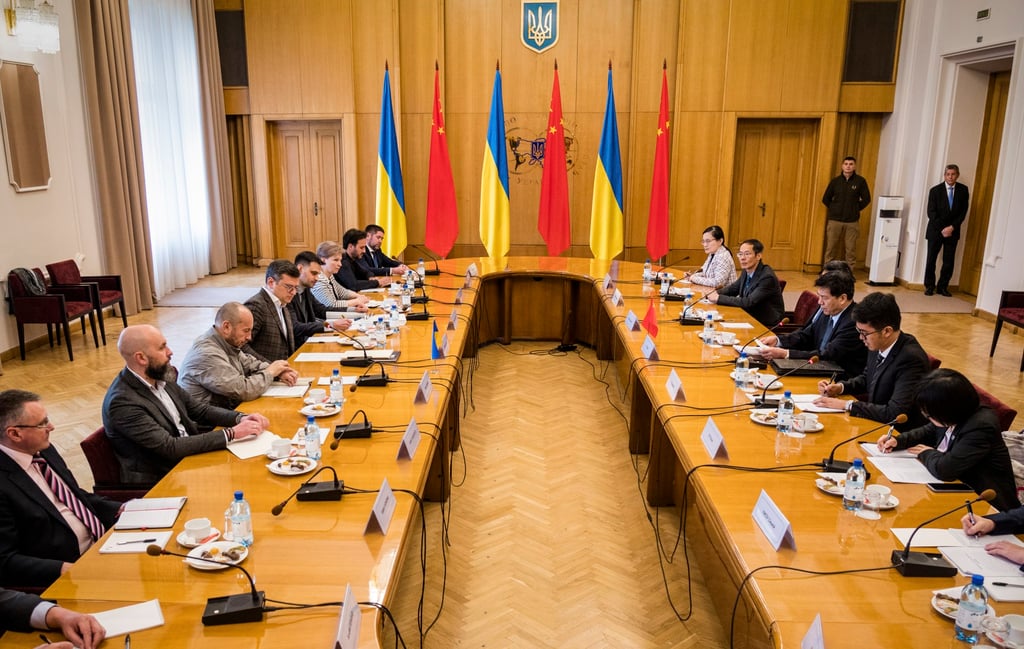Ukraine’s foreign minister Dmytro Kuleba to visit China for talks in search for end to war
In a video speech released on Weibo, China’s equivalent of X, Kuleba said they would discuss matters such as the “restoration of peace, deepening our bilateral dialogue, and expanding trade and economic cooperation”.
During those talks, the Ukrainian official urged Beijing to send a delegation to last month’s peace summit in Switzerland. China did not attend, and said the participation of both warring parties was a prerequisite for any meaningful peace summit.
Ukrainian President Volodymyr Zelensky had openly criticised Beijing for trying to dissuade other countries from attending the peace conference.
Last week, Zelensky announced that his country aimed to hold another peace conference by November, focusing on his vision for peace in Ukraine, and urged Russian representatives to attend.
Kyiv has been seeking to improve communication with Beijing over the Russian invasion of Ukraine. In March, Kuleba said China held “great potential” to help end the conflict, and that both nations remained confident in each other.

Kuleba met Wang in February on the sidelines of the Munich Security Conference, when Wang reassured him that China would not sell any lethal arms to either side.
Beijing has stressed it is neutral in the conflict but has faced disapproval for offering economic support to Moscow amid international sanctions. China has also not condemned Russia’s invasion.
In the proposal, they urged relevant parties to adhere to three principles for de-escalation: no expansion of the battlefield, no escalation of fighting, and no provocation by any side.